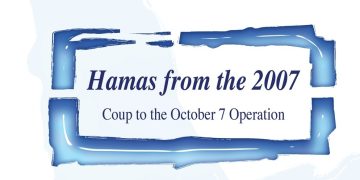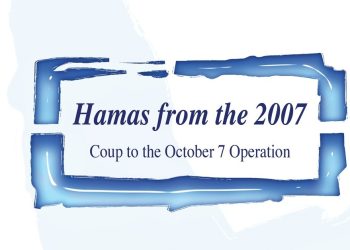The Abu Ghraib scandal was the Mỹ Lai of the Iraq War. Like the horrifying events of March 16, 1968 in Son Tinh District, South Vietnam, the Abu Ghraib disaster, which broke open on April 28, 2004, severely undermined the moral justification for the U.S. Government’s use of force in a non-Western theatre of war. Although the incidents differed in many ways–no body piles attended the Abu Ghraib scandal, for example–the effects were both international in scope and doubled back to affect U.S. domestic opinion on the war.
The only place on the planet that the revelations came across as less than shocking was in Iraq itself, for Abu Ghraib had for decades been the scene of massive torture and gruesome death under the Ba’athi regime.
One other important similarity between these two events is that, in both, U.S. media personalities took credit for breaking the story, and the urban legend developed subsequently that prior to media attention U.S. officials either knew nothing of the abuses or were involved in a cover-up concerning them. In neither case was this true.
Seymour Hersh attained star media status by claiming to have uncovered Mỹ
Lai, but in fact the U.S. Army had already begun investigating the incident and Hersh was merely informed–after which he sensationalized the facts and claimed falsely that the micro-moral rot on view at Mỹ Lai characterized the entire U.S. military. Not for nothing did then-New York Times executive editor Abe Rosenthal called Hersh, with wry affection, “My little Commie.”
Similarly, long before Sixty Minutes sensationalized Abu Ghraib with a prime-time exposé on April 28, 2004, an internal investigation of prisoner abuse had been in train. On January 13 a soldier reported instances of prisoner abuse to a superior and an investigation was launched. Within days both the Commander of the 320th Military Police (MP) battalion and of the 372nd Military Police company had been suspended from their positions, and MP commanding Brig. General Janis Karpinski was given a memorandum of admonishment. Two days later the Commander of U.S. Forces in Iraq, Lt. General Ricardo Sanchez, asked his superiors for an investigation of the 800th Military Police Brigade going back to the previous November, and less than two weeks after that Major General Antonio Taguba was tapped to conduct that investigation. Taguba completed his work in March, forwarding his report to Lt. Gen. David McKiernan, then commander of U.S. ground forces in Iraq. On March 20, more than a month before the Sixty Minutes segment aired, charges were filed against six soldiers. The Sixty Minutes report mentioned none of this.
But that report nevertheless electrified the war. On the day the revelations hit the newspapers the Seventh Floor of the State Department fell into deep dungeon. The Secretary himself was abroad on April 28 at a NATO conclave, and took the happenstance of being across the pond to arrange a private briefing for America’s Arab allies in the German-owed Movenpick resort on the Jordanian side of the Dead Sea. When I say private, I mean that you will find no mention of it in the State Department’s typically punctilious archives, and the Powell needed no long-distance help from speechwriters.
Alas in our media-festooned, spectacle-inclined politics, what has come to matter are impressions, not facts, instant spin, not analysis based on understanding relevant context. Increasingly so in a generically impatient age, mass media cater to the superficial and present-oriented in order to seize and hold market share. The result is that public opinion on invariably complex and often esoteric issues of foreign and national security policy is too much shaped by caricature, ideological bias, and plain laziness.
It is also shaped in a different way, from the inside, by rare high officials particularly well attuned to the techniques of avoiding tasks and responsibilities they do not wish to take on amid a sprawling, and thus malleable, ensemble of bureaucracies. In all of American history few have been more skilled at such techniques than Donald Rumsfeld.
The Real Origins of a Debacle
We began this essay series shortly after Rumsfeld’s passing on June 29, 2021, and we stressed at the outset that the conventional history of the Iraq War is marred not only by inaccuracies and imbalances but also because several important questions about key events were rarely if ever even asked. The true origins of the Abu Ghraib disaster exemplify both Rumsfeld’s skill at bureaucratic maneuver and the failure of observers-after-the-fact, both media types and academics, to pose pertinent questions. The reason for this failure is disarmingly simple: As able and intelligent as they may otherwise be, those who have never worked in government at mid- to high-levels lack a close familiarity with what the in-box looks and feels like. That is why they cannot hear dogs that do not bark.
The central unasked question about Abu Ghraib was and remains this: Why did the CIA end up with responsibility for deciding how to handle interrogations of “high-value” detainees in Iraq, those who might have knowledge and information critical to heading off new attacks against the United States and its allies, and then with the actual task of interrogating them?
After all, any number of commentators might have reasoned, the U.S. Department of Defense, like most Western ministries with uniformed militaries, had a wealth of historical experience and expertise managing prisoners and military prisons. Legal procedures had long been established, including the use when necessary of both interrogations and military tribunals. Yet in the case of Iraq, the CIA, which had very little such experience and almost no expertise, ended up with the task. The rules it worked out the aid of Justice Department and White House lawyers, for better or for worse, were influenced by unprecedentedly ambiguous circumstances and shadowed by no small reservoir of anxiety. As of October 29, 2021 the details of “enhanced interrogation” now reside in the public domain thanks to the testimony of the al-Qaeda “courier” Majid Khan (https://www.theguardian.com/us-news/2021/oct/29/going-die-guantanamo-prisoner-torture-testimony). Those techniques then influenced Department of Defense (DoD) Military Police companies and battalions managing and interrogating detainees at places like Abu Ghraib.
The answer to the question of how the CIA ended up with a job that should by rights have been DoD’s is in some ways complex, but ultimately the answer that matters most is very simple. Complex things first, however.
One complexity concerns the legacy from the early stage of the war in Afghanistan. The CIA had primary operational control for bringing down the Taliban regime, and it did so very effectively. Using only 426 personnel on the ground, largely directing air power, and with the major help of Ahmad Shah Masoud’s Northern Alliance, the Taliban collapsed quickly.
All this is well known. Not so well known is that while this was happening, Donald Rumsfeld and other DoD officials expressed doubt to CIA Director George Tenet and to the White House that the Northern Alliance would be able to do the job on its own. As Tenet related on page 217 of his 2007 memoir At the Center of the Storm, during a Friday morning meeting on November 9, 2001, Pentagon officials briefed the White House that things were not going well in the battle for Mazar-i-Sharif, a key objective in the campaign. Hank Crumpton of the CIA disagreed, predicting that the city would fall within 48 hours. The DoD contingent smirked in unison, but Mazar-i-Sharif fell to the Northern Alliance the very next day.
This is multiply ironic. When Rumsfeld became Defense Secretary in January 2001 for the second time–he had the job from 1975-77 during the Ford Administration, the youngest person ever to hold the office–he soon became appalled at how much more hidebound and bureaucratically hogtied the Department and the uniformed services had become in the intervening quarter century. His mission, as he saw it, was to drag the Department of Defense, civilians and military alike, into the 21st-century’s “revolution in military affairs”. Before September 11, 2001, his brusque manner with senior military officers and impatience with the civilian bureaucracy nearly cost him his job. Rumors proliferated that President Bush was going to send Rumsfeld to the CIA, or drop him entirely from the senior ranks of the Administration. Then came the terror attacks of 9/11, and everything morphed.
Soon after 9/11 the top military brass came to Rumsfeld with an invasion plan to topple the Taliban involving huge numbers of U.S. forces. Rumsfeld saw what that meant for his acquisition and reform aspirations, so he eagerly stymied that idea in favour of a CIA-led special-forces approach to dealing with the Taliban, and to the al-Qaeda networks soon to be orphaned inside the country. But, as noted, Rumsfeld then criticized the CIA effort, in part to propitiate those in DoD he had earlier offended. Yet when the CIA design in Afghanistan worked so well and so quickly, Rumsfeld realized that the CIA had given him an excellent template for the more agile, more lethal and probably less expensive way of war he sought–which he and his senior staff then rushed to apply, inappropriately as it turned out, to Iraq. Ironies are not always amusing.
The idea was simple: Keep the “big Army”, Rumsfeld’s bête noire, out of the picture in Iraq as it had been kept out in Afghanistan. DoD planning for Iraq, such as it was, took the “light footprint” approach as its key premise and designed all the other aspects of the campaign around it, beginning with a “shock and awe” spasm of violence that missed its main target. It turned out to be much too light a footprint, as Secretary of State Colin Powell–a Four Star-Army general, remember–had warned.
Rumsfeld, meanwhile, could barely have cared less about Iraq as such. He was focused instead on what the new methodology of presumed victory would mean for his overriding goal of modernizing the U.S. military with a revolutionary, technology-driven way of war. That is why when his desiderata concerning Iraq did not pan out–when “shock and awe” failed to kill Saddam Hussein and his senior staff, when there were not enough troops in country to prevent mass looting, the collapse of infrastructure and basic order, when the insurgency broke out that Rumsfeld long refused to call an insurgency–the planning void, for considerations like dealing with detainees among many others, became apparent. What happened was disarmingly simple: Plan A failed, and Plan B did not exist.
The top layer of irony, so to speak, is that despite Rumsfeld’s success in turning aside the original “big Army” plan for Afghanistan, the U.S. Government ended up occupying Afghanistan with a large force anyway, eventually a multinational one when the allies got dragged in, in pursuit of will-o’-the-wisp “nation-building” fantasies. Much of that accreted after Rumsfeld had left office, but it started while he was still there. Why did he let that happen, against all his instincts and better judgment?
To some extent bureaucratic inertia wore him down, to some extent he was reluctant to buck the conservative “nation-building” idealism coming out of the White House, and he was probably already distracted by the likelihood of war in Iraq. We may never know the actual balance of factors. What we do know is that Rumsfeld was on record from the start as opposing such exertions, and so if they failed he could always step out of the way of any projectile blame.
In any event, Iraq was not going to be a CIA but a DoD project in the main and, as already suggested, Rumsfeld was determined to avoid a sprawling operation, to turn the task of governing Iraq back to Iraqis as quickly as possible, and to leave behind the smallest residual U.S. military presence possible. To that end, too, he sought ways to avoid sticking DoD with any responsibilities he could fob off onto others. Three such responsibilities are especially illustrative and one has direct relevance to what happened at Abu Ghraib.
Who, Me?
The first concerned the hunt for Iraqi’s WMD stockpiles that everyone high in the Administration believed existed (only the State Department’s INR, and the small intelligence office at the Department of Energy, registered a demur dissent). Shortly after declaring the end of major combat operations in Iraq in early May 2003, President Bush described to George Tenet a conversation he had recently had in the Oval Office with Jerry Bremer and Tommy Franks–respectively, the head of the newly set up Coalition Provisional Authority (CPA) and the head of CENTCOM. Bush described to Tenet how when he asked them who was in charge of finding WMD stockpiles in Iraq, each pointed the index finger of his right hand at the other guy. Then Tenet reported: “The President looked at me and said, ‘As a result, you are now in charge, George.” Tenet added, tellingly: “The Pentagon was still calling the shots in Iraq . . . but it already had enough to do on the ground and was more than happy to see the CIA shoulder the responsibility for the WMD hunt.” (At the Center of the Storm, p. 403.) “Happy” is hardly a strong enough word, George.
That is how the CIA was given operational control of the WMD search in Iraq, despite the fact that nearly all the physical equipment it needed to do that job belonged to the Defense Department. People tend to forget, or not know, or get wrong from watching too much bad television and too many fanciful movies, that about 95 percent of what the CIA does is “collections and analysis” and only about 5 percent is “operations”–and that includes operations of all kinds, from spying to selectively whacking bad guys with drones. It didn’t matter: DoD would provide the CIA what it wanted to provide, and if things did not go well it could evade blame. That’s more or less what happened when no stockpiles of note turned up.
The same pattern shows up in Rumsfeld’s relationship with Jerry Bremer and his Coalition Provisional Authority. Bremer was under DoD oversight from the start of his CPA tenure, and for a while he and Rumsfeld got on well. But when the occupation morphed into play-catch-up counterinsurgency, Rumsfeld commenced another of his disappearing acts. On December 6, 2003, at the Baghdad airport, Rumsfeld later wrote in his 2011 memoir Known and Unknown: “I advised Jerry Bremer that the Department of Defense’s oversight of his activities as CPA administrator was ending.” Rumsfeld seems to have done this on his own, without forewarning the White House, let alone asking its view: Better to ask forgiveness than permission.
For the third example, most germane to the origin of the Abu Ghraib debacle, let Condoleezza Rice’s memoir, No Higher Honor (2011), begin the tale.
First of all, as Rice pointed out, the media helped create a confusion of conflation between the CIA interrogations of high-value detainees at Guantánamo Bay and the management of the mass of detainees in Iraq, mainly at Abu Ghraib. No direct link existed between the “enhanced interrogation” techniques the CIA used on a small number of detainees at Guantánamo–37 in total–aimed at thwarting new attacks then in planning stages, and the abuses that later arose at Abu Ghraib. But there was an indirect link.
Legal questions quickly arose from within the Administration about the President’s authority to detain anyone, since without a declaration of war the entire operation rested solely on the Executive authority of the President as Commander-in-Chief. Concomitant with that question was the matter of how long the President’s authority could hold detainees without offering them any means of redress. So President Bush in November 2001 ordered the establishment of military commissions, or tribunals, to deal with terrorist suspects, it being clear that these suspects did not merit the protections of the 1949 Geneva Convention. Armed combatants must be uniformed so that they can be distinguished from civilians, and there must be a chain of command such that orders to stand down or surrender can be obeyed. Neither of those conditions applied to al-Qaeda detainees or to most detainees at Abu Ghraib.
Nevertheless, it made prudent sense to limit the incarceration and interrogation of high-value detainees to the extent possible, and later, after March 2003, to apply standard safeguards in the military code pertaining to prisoners held under Military Police auspices inside occupied Iraq. But “unfortunately”, Rice continued, “the Defense Department was painfully slow in setting up these tribunals. . . . [I]t took a full year for Defense Department lawyers to even decide what crimes could be tried before the commission.” So beginning in October 2002, five months before the Iraq War began, Rice describes her convening of a series of Principals Committee meetings to deal specifically with detainee issues. Then she wrote:
For reasons I don’t fully understand, Don Rumsfeld did not participate fully in these meetings and eventually refused to attend them at all, sending his Deputy, Paul Wolfowitz, instead. That produced one bizarre incident that remains vivid in my memory. I’d convened back-to-back Principals Committee meetings, one on Iraq and one on detainee issues. . . . When the first meeting concluded and I introduced the subject of detainees, Don got up and walked toward the door. ‘Don, where are you going?’ I asked. ‘I don’t do detainees,’ he replied as he walked out.
That, in a nutshell, is how the CIA got tagged with doing interrogations of high-valued detainees. Rumsfeld simply refused to let DoD be involved, and the President let him get away with it. Reasons don’t get much simpler than that.
Trickle Down
Those techniques trickled down from Guantánamo to Abu Ghraib. Not that waterboarding occurred at Abu Ghraib; the connection was subtler than mere copycat imitation. In essence, the U.S. personnel in charge at Abu Ghraib, as well as the MP rank-and-file beneath them, were way out of their depth for two main reasons, and into the vacuum of their experience flowed the spirit, not the letter, of the newly created CIA interrogation dispensation.
The first reason is that no Americans expected ever to be at Abu Ghraib in the first place. When the war entered its second week and prisoners became an issue, the U.S. military held them near the airport in Baghdad at a place called Camp Cropper. The number of detainees soon became too large for such impromptu arrangements, so Abu Ghraib, which had been shut down after the invasion, was re-opened on August 4. None of the U.S. Military Police officials in Iraq anticipated being in charge of such a massive prison complex, or to have a job so huge set before them. No planning or special personnel training had taken place, and no specific budget existed for the task.
The second of these reasons is that those called upon to fill the MP ranks for Abu Ghraib were weekend-warrior reservists who lacked relevant experience for the job. Moreover, none had been briefed on Iraq, and most were from southwestern Pennsylvania and West Virginia–from Appalachia, in other words, not exactly the most urbane region in the United States. The reservists expected to just process detainees and hand them over to active-duty MP professionals; most assumed they would be heading back home in a couple weeks, and none anticipated becoming full-time jailers. But just as the Office of the Secretary of Defense slow-rolled the tribunals, it willfully ignored the detainee issue within Iraq.
Condoleezza Rice’s detainee meetings continued as developments required. On one occasion the question of allowing International Committee of the Red Cross (ICRC) access to Guantánamo arose. The discussion remains still out of public access but, in summary, Rumsfeld just refused to consider allowing access. These were not prisoners entitled to the protections of the Geneva Convention, he avered, and that was that; so the Red Cross had no business there. Powell and others argued that the diplomatic damage of refusing access would do more harm than anything Red Cross observers might see and report. Rumsfeld would not budge.
Eventually, the ICRC did gain access to Guantánamo; via Dr. Rice’s efforts the President eventually overrode Rumsfeld’s reticence. But then several months later, after the Iraq War’s combat phase had ended and the insurgency had begun, the ICRC sought access to Abu Ghraib, as well. And again, at Rumsfeld’s behest, DoD refused despite the precedent of Guantánamo. Again too, reportedly, President Bush just listened, saying nothing.
When I say reportedly, I mean that when Powell returned to his small back office at the State Department from this meeting at around 6:30, he was as livid as I ever saw him. I recall him warning that refusing the ICRC access to Abu Ghraib could set all Administration principals up for later being indicted as war criminals by the likes of Spanish Judge Baltasar Garzón Real, the crusading avatar of “international legal jurisdiction”. But his main concern was the diplomatic damage this could do to the U.S. alliance system, to Powell the very bedrock of U.S. national security policy.
In any event, back in Iraq, morale among Abu Ghraib’s MP reservists plummeted; no one seemed in charge; some detainees managed to escape; and as the numbers of detainees increased but the number of MPs didn’t, riots ensued that the reservists had trouble containing. Into the volatile mix then came Military Intelligence units ordering the MP reservists to single out certain detainees for special interrogation. For example, Specialist Luciana Spencer of the 205th Military Intelligence Brigade forced a male detainee to strip and remain naked in his cell in the Tier 1A Facility holding military intelligence targets.
Such an interrogation technique was plainly out of bounds under standard DoD Military Police procedures. But under the influence of the CIA’s “enhanced interrogation” dispensation, Ms. Spencer apparently felt justified in improvising. Perhaps MP code violations of that kind would have happened anyway under the circumstances even had the CIA never taken a role in the interrogation process, but it seems unlikely.
If the MIs can do stuff like that, reasoned some MP reservists, why not us? So some began to do things reminiscent of the movie “Deliverance”, except without the bluegrass music. Thanks to photos handed over to Sixty Minutes by a soldier with a conscience, the world saw a petite woman named Lynndie England, a 21-year old reservist from West Virginia, holding a leash on the other end of which was a naked Iraqi male, noosed around the neck, his hands tied behind his back, lying on the floor. Ms. England claimed that her superiors ordered her to do this so that distributed photographs of the man’s disgrace would intimidate other would-be challengers to U.S. authority.
What the world didn’t see was Ms. England having sex with another soon-to-be court-martialed MP reservist named Charles Graner. But the Army JAG (Judge Advocate General) investigators found out, so England was eventually charged with two counts of “indecent acts” in addition to 13 other more readily explicable counts. She became pregnant, but Mr. Graner decided to marry another Abu Ghraib reservist court-martialed for abusing detainees, Megan Ambuhl. Why relate these sordid details? Less to suggest the virtue deficit of some of the reservists, more to show how profoundly unsuited they were for the duties they were assigned.
No reservists from any part of the United States, no matter how well-schooled and world-wise, should ever have been given such duties. But then no one at DoD anticipated that such duties would ever exist, and the Secretary of Defense himself was determined to “not do” detainees. He certainly opposed the idea of peeling active-duty troops away from more critical missions; he needed them all to do core tasks and so keep the overall number of troops in country as low as possible, and as quick to the exit as possible.
Bush Wobbles
To his credit, Rumsfeld offered to resign when the Abu Ghraib scandal broke open, and in his memoir he admits failing to see the detainee in a political as opposed to a legal-technical light. Bush wanted to replace Rumsfeld but decided that scandal’s wake was not the right circumstance, because, he wrote in his 2010 memoir Decision Points, making a scapegoat out of his own Defense Secretary risked showing his own weakness and ingratitude simultaneously.
Very likely, Bush also didn’t want to fire Rumsfeld while Powell was still Secretary of State, lest he seem to signal a preference for Powell’s general disposition toward the terrorism challenge–Powell did not consider it an existential threat. Abu Ghraib led Bush finally to want to jettison Rumsfeld and Powell at the same time when he belatedly realized how damaging the Administration’s internal disarray really was, but better to do it later on as he began a second term after winning the November 2004 election. That’s not what happened, however: Bush did win re-election, but Rumsfeld remained in office until the day after the 2006 midterms; Powell left with the transition to the second term, giving way to Rice.
Bush claimed in his memoir he kept Rumsfeld on so long after Abu Ghraib because he struggled to find a suitable replacement. Odd: Robert Gates looks to have been as available in the spring of 2004 as he was in the autumn of 2006. It seems not to have occurred to Bush, just as Rice could not “fully understand” why Rumsfeld refused to participate in her detainee meetings, that Rumsfeld was a shrewder bureaucratic gamesman than the two of them put together. If back in 1975 Rumsfeld could manage to get even Henry Kissinger demoted from being National Security Advisor in favor of Brent Scowcroft (Kissinger remained Secretary of State), managing Rice and Bush, likely with Vice-President Dick Cheney’s aid, must have seemed like child’s play.
The Inner Rumsfeld
At Princeton Rumsfeld was on the wrestling team. He was not necessarily faster, stronger, or more skilled than most of his competition, but he saw all the elements of competition, physical and psychological, as a single system, and he was ruthlessly single-minded about winning. That ruthless determination was evident throughout Rumsfeld’s career. Since it often does take one to know one, consider what Richard Nixon said about a young Don Rumsfeld, after Rumsfeld had landed a White House job from his position as a “sharp-elbowed” four-term Congressman from Illinois, in a March 9, 1971 conversation with Bob Haldeman: He’s “tough enough”, said Nixon, he’s “a ruthless little bastard”.
What Nixon possibly overlooked beyond the toughness and ruthlessness was Rumsfeld’s cleverness. Rumsfeld, who became Gerald Ford’s White House Chief of Staff after Nixon’s August 1974 resignation from the presidency, had been chest-deep in Nixon White House intrigues. It defies imagination that Rumsfeld did not know about the origins of Watergate and the development of the cover-up. But Rumsfeld was clever enough to guess the shape of the coming fallout and dodge the consequences. At the perfect, opportune moment, just after the November 1972 election, Rumsfeld managed to get himself appointed U.S. Ambassador to NATO. When the Watergate scandal hit prime time, Rumsfeld was in Brussels, dining high in some of the world’s finest restaurants but keeping his head low. To this day almost no one associates Rumsfeld with Watergate and the depredations of the Nixon White House; but he was there, right in the thick of it.
Epilogue
Many lessons may be drawn from our brief review of Iraq War history, but the one that stands out is that people–the senior leadership of any U.S. Administration, and particularly the President and his closest cabinet-rank colleagues–and how their personalities and experiences mesh or fail to mesh, explain more about major decision outcomes than any organizational chart could ever hope to match.
A related realization, more specific to the Iraq War, stems from what a haphazard mess it really was. All decisions to use force tempt fate with unanticipated consequences, but unanticipated consequences of the nastiest, rippling-out type are almost guaranteed when planning is based on unrealistic premises. As noted in a previous essay, what actually happened–an occupation that broke the skein of Iraqi sovereignty, and whose decisions inter alia contributed to the worsening of sectarian tensions and to a multipartite insurgency amid a near-civil war that quickly overwhelmed what passed for U.S. post-combat planning–was the last thing than any agency of the U.S. government wanted to happen or planned for. Budget documents prove that no one sought an occupation, because no agency asked for funds to pay for it–an unnatural act of bureaucratic gamesmanship if there ever was one. But it happened anyway.
One can point at any number of senior U.S. officials for screwing up. But in the United States we are accustomed to calling the foreign policy of the United States the policy of the President because he (and the Vice President, who typically counts for much less…but not in this case, as it happened) are the only elected members of the Executive Branch. That is what follows from the principle of democratic accountability: “The buck stops here”, read the famous sign on Harry Truman’s Oval Office desk, and so it (usually) does.
Ultimately, then, George W. Bush’s inexperience in foreign and national security policy, and his owning a personality more battered and fragile than that of most Presidents, created a leadership deficit in an unprecedented crisis that proved less his own undoing (he got re-elected in 2004 anyway, remember) than the country’s. Along with the “Great Recession” of 2007-8, the miserable management of the Iraq War is more responsible for the collapse of trust in the nation’s political elite, and the onset of the current spasm of populist surrealism, than any other single inflection point.
The surrealism has deep roots below ground, true enough. But the war’s shadow above ground is long indeed, and in the tenebrous background there will always be, so long as anyone remains alive to remember them, the sickening silhouettes of Lynndie England at Abu Ghraib prison.
***
Mending the Historical Record of the Iraq War — Part V: Abu Ghraib
Part I: “Donald Rumsfeld (July 9, 1923-June 29, 2021)”, published July 8, 2021
Part II: “War Rationales”, published July 21, 2021
Part III: “Jumping the Track”, published September 21, 2021
Part IV: “Intelligence Failures, Not Lies”, published [?]
Part V: “Abu Ghraib”, published ??














